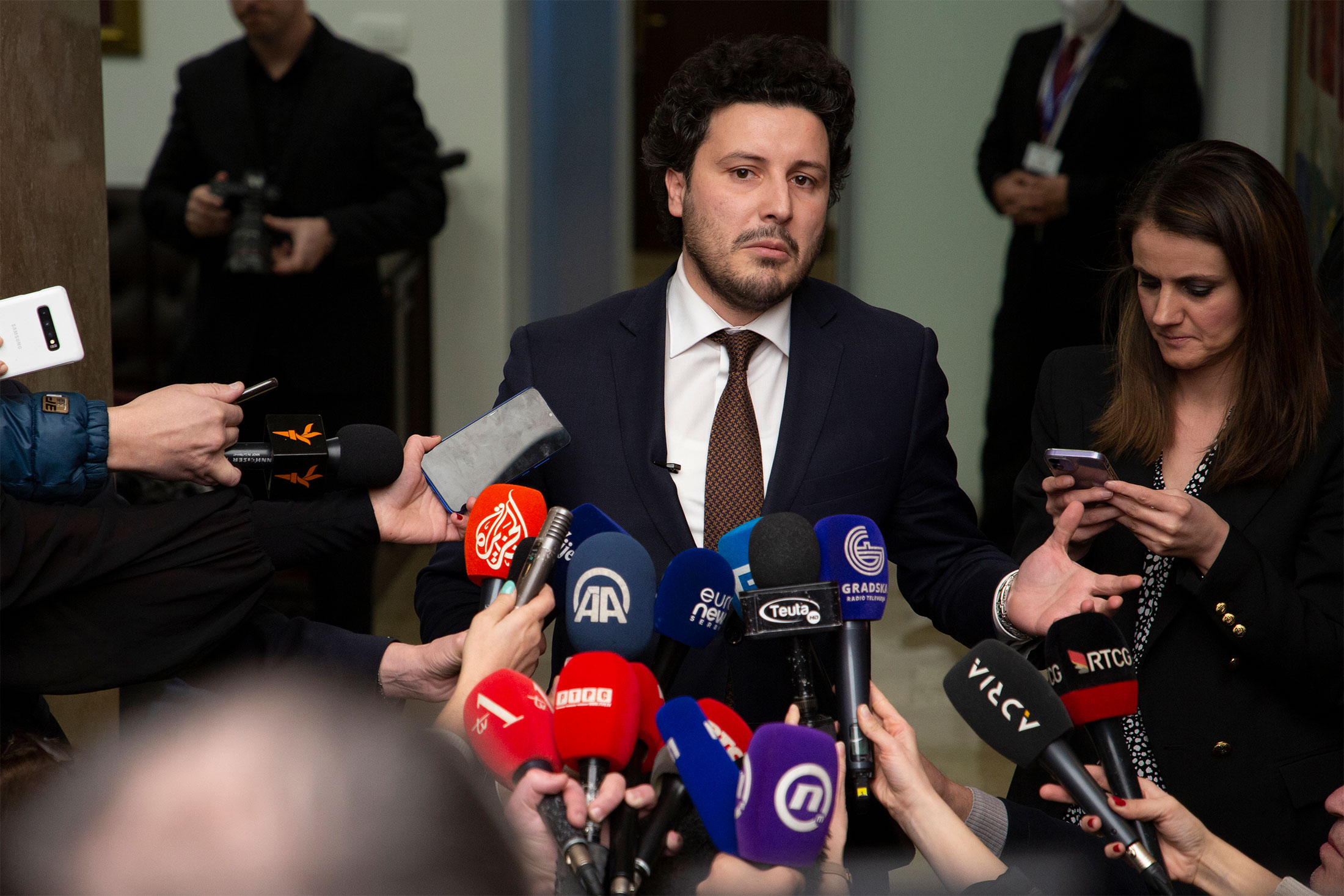

Right after completing the first 100 days of its work, Montenegro’s latest government was ousted after parliament backed a vote of no-confidence called by the Democratic Party of Socialists (DPS) and smaller parties in the ruling coalition.
Following the collapse of Zdravko Krivokapić’s government of nonpartisan experts in February 2022, Dritan Abazović’ minority government, backed in the parliament by its former opponents, proved to be yet another risky experiment that promised a lot, yet delivered little.
While having genuine intentions in fast-tracking Montenegro’s EU membership, it seems that Abazović never had a well-developed strategy to achieve this ambitious goal.
Despite admirable decisiveness in fighting corruption, Abazović and his party nevertheless committed three fouls for which their tenure will be remembered: the unconstitutional postponing of local elections in Podgorica and 13 other municipalities; unprecedented gerrymandering in the capital during the election process; and the fast tracking of the signing of the fundamental agreement with the Serbian Orthodox Church, which the DPS flagged as the main reason for initiating this vote of confidence.
While the DPS might have framed the signing of the agreement as a “betrayal of national interests”, it became perfectly obvious that their actual problem with Abazović’s government was his determination in decriminalizing the state and breaking up criminal organizations that thrived under the DPS’s three-decade rule.
So, what happens next? If we put the possibility of snap elections – something that every party is proposing, yet not one seems to be ready for – aside, two possible scenarios remain: the end of experimentation (less likely) and the continuation of experimentation (more likely).
The first scenario: the old parliamentary anti-DPS majority that backed Krivokapić’s government can get back to the table and talk this one out. The only problem is bad blood between Abazović’s United Reform Action (URA) and the new kingmakers – the Democratic Montenegro party – which voted for the motion of no confidence. Democrats did not support reconstruction of Abazović’s government because they believed the current situation would give them a stronger negotiating position and greater room for maneuver, with a possibility of nominating the president of the party, Aleksa Bečić, as the prime minister designate.
URA and its coalition partner, the Socialist People’s Party, explicitly stated that Democratic Montenegro should form a government only with those parties which voted for the motion of no confidence, giving no indication that Bečić could count on them for supporting his government. In addition, the US State Department reiterated that they do not see the largest constituent of the old parliamentary majority, the Democratic Front, as a “partner organization”, which adds a layer of geopolitical inconvenience to this scenario.
The second scenario: yet another nonpartisan, technocratic government, but with a transitional mandate to prepare for the first free and fair elections and, possibly, fulfill some promises that Abazović failed to deliver. If Democratic Montenegro is to be believed, they will not enter into deals with the DPS à la URA’s minority government.
Quite simply, their rigid electorate is so staunchly anti-DPS, that it would be impossible for the party leadership – who characterized URA’s brief partnership with the DPS as “treason” – to justify such arrangement at the moment. Therefore, the Democrats will likely try not to get themselves “dirty” by formally partnering with the DPS; instead, they will most likely try to do it indirectly.
This “proxy” could be a transitional technocratic government formed from pro-Western and nonpartisan experts – predominantly coming from the non-governmental and academic sectors – with close informal ties to Democratic Montenegro, the DPS, and other parties that would support such a government in the parliament.
What could potentially differentiate these experts from the ones that served in Krivokapić’s government would be a seal of approval from the Western embassies in Podgorica. This would be a model through which the Democrats would not formally “taint” themselves in the eyes of their voters, while essentially exercising power.
While governments are being ousted one after another in the parliament, thus proving that democratic accountability is gaining traction in Montenegro, the DPS is capitalizing on this instability and sending a message to the international community that it is the only guarantor of stable government in the country.
Photo: Savo Prelević (RFE/RL)